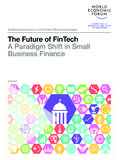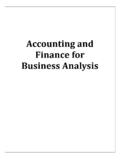Transcription of The Basics of Business Finance - McMillan
1 The Basics of Business Finance 2007 All rights reserved The Basics of Business Finance by John McMillan The Basics of Business Finance More tips and advice from John 2012 All rights reserved Page 2 of 5 The Basics of Business Finance Sources of Finance The main sources of Business Finance are: Personal Savings Grants Loans Friends, families and fools Business angels Venture capitalists There can be some confusion as to the differences between them. I have seen one article that regards them as alternatives.
2 In fact, a really successful Business will use most or all of them. When you first start a Business you will need to fund it from your personal savings, with possible help from grants and friends. In fact, one study found that 61% of UK start-ups are funded entirely by the personal savings and investments of their owners. Outside investors won t touch the Business until you can demonstrate that it has at least an 80% chance of succeeding. They expect the owner to invest as much as he can afford. The good news is that they will usually take into account the time you have invested in the Business .
3 Government grants are available for a range of reasons and it would be foolish to pass them over. For example, your Business may be seen as strategic, or it may help in the development of social goals such as rural development or socially disadvantaged groups. A good source of advice is your local Enterprise Agency or Business Link. Types of Funding It is worth noting the different types of funding. Firstly a loan. This is borrowed, from a friend or family or a bank and has to be repaid. You will have to pay a fixed rate of interest on the loan.
4 In the case of a commercial loan, you will almost certainly have to provide some security, typically your home. If you do not have enough assets to secure the loan you need, you may qualify for the Small Firms Loan Guarantee Scheme. This scheme will protect the bank for the risk of a loan. Apart from mortgages, loans tend to be for less than 100,000. A grant does not have to be repaid. It will however come with a number of conditions. Equity is the selling of part of the Business in return for cash.
5 Equity normally comes from Business angels, venture capitalists or a stock market flotation. You do not pay interest on equity, but share the profits between the equity partners. If the venture fails, the equity investors lose their investments. The Basics of Business Finance More tips and advice from John 2012 All rights reserved Page 3 of 5 Equity invested by professional investors is invariably a far more expensive source of capital than loans. They tend to expect to lose one investment in 5, which means the ones that succeed have to pay for the ones that fail.
6 A rough rule of thumb is that the Business should plan to generate enough cash to be able to repay the original investment in the third or fourth year of operation. Sources of Equity Business angels are wealthy individuals. They have generally run companies and invest from 50,000 to 250,000. They often like to work hands on, coming in as working directors. Angels often invest in 2 or 3 companies at once, and sometimes work in consortia. It can be difficult to find Business angels as they rarely advertise but find their target companies by networking.
7 So, if you will need a Business angel, the rule is get networking. Venture capitalists are fund managers, and invest from 250,000 to around 2 million. They generally invest for around 4 years and expect you to go public or buy out after that. (The Business angels will want their money at this time, too). Venture capitalists can be aggressive. They have been described as Estate agents without the scruples. It is worth mentioning that, although the investors will demand a very high return, they will expect you to make a high return as well.
8 They normally accept the need to keep you motivated. Alternatives to Finance Never overlook alternatives to Finance . Be as creative as you can. The less Finance you need, the easier your life will be. Leverage everything before using Finance . Can you sell consultancy during the development phase? If so, that will have a huge impact on your need for cash. Will a customer pay some or all of the development? Not only will that improve the cash flow, but when you do look for Finance , that will be seen as a huge vote for confidence in your Business .
9 Can you barter your services? What other ideas can you have? Stages of Finance Equity is invested in stages or rounds. A successful Business will pass through all of these. Seed capital for the feasibility and design comes from personal savings, and contacts Start-up commencing trading - will come from grants and loans Angels will tend to come in when trading starts Expansion comes from angels and VCs Further growth will come from VCs. The Basics of Business Finance More tips and advice from John 2012 All rights reserved Page 4 of 5 Investors Criteria Investors claim there is no shortage of capital, the real shortage is of talented of management pursuing genuine opportunities.
10 The key issues they want to see are: A product that fulfils a quantifiable need Ability to protect the concept A sustainable market A management team that can deliver They will want answers to questions about the market and your ability to deliver: How big is the market? How can you prove this? How can you show the price is right? How realistic are your costs? What s your track record? What s the most relevant experience of the team? Questions about the Finance need to be answered. You and the investor need to know what you need the money for.





